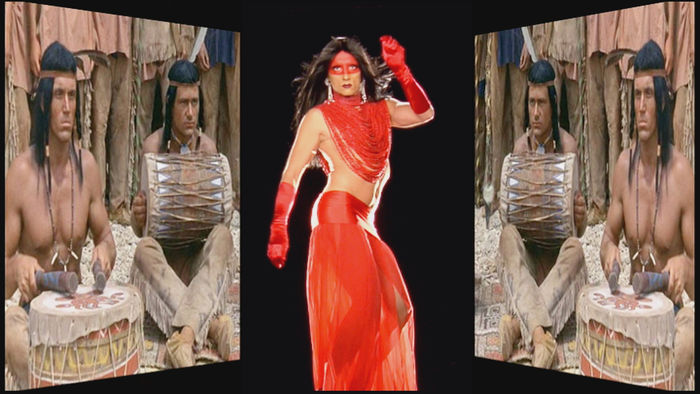Jim Fletcher is a founding member of the New York City Players with Richard Maxwell, with whom, this past year, he has appeared in Isolde, and The Evening. In 2016 he appeared in the films Two A.M. by Loretta Fahrenholz, and Pinochet Porn by Ellen Cantor. Fletcher works with the art collective Bernadette Corporation.
Adam Khalil and Zack Khalil (Ojibway) are filmmakers and artists from Sault Ste. Marie, Michigan and are currently based in Brooklyn, New York. Their work centers Indigenous narratives in the present—and looks towards the future—while subverting traditional forms of ethnography through humor, transgression, and innovative nonfiction practice. Their films and installations have been exhibited at The Museum of Modern Art, the Walker Art Center, and the Sundance Film Festival among other institutions. They both graduated from the Film and Electronic Arts program at Bard College, and are UnionDocs Collaborative Fellows, Gates Millennium Scholars, and current Sundance Native Film Fellows.
Kite, a.k.a. Suzanne Kite, is an Oglala Lakota performance artist, visual artist, and composer raised in Southern California, with a BFA from CalArts in music composition and an MFA from Bard College’s Milton Avery Graduate School, and is a PhD student at Concordia University. Her research is concerned with contemporary Lakota mythologies and epistemologies and investigates the multiplicity of mythologies existing constantly in the contemporary storytelling of the Lakota through research, computational media, and performance practice. Recently, Kite has been developing a body interface for movement performances, carbon fiber sculptures, immersive video and sound installations, as well as co-running the experimental electronic imprint, Unheard Records.
Jackson Polys is a visual artist whose practice reflects an inquiry into the limits and viability of desires for Indigenous growth. He works in Alaska and New York, and has had solo exhibitions at the Alaska State Museum and the Anchorage Museum. He earned an MFA in Visual Arts from Columbia University in 2015 and is the recipient of a 2017 NACF Mentor Artist Fellowship
